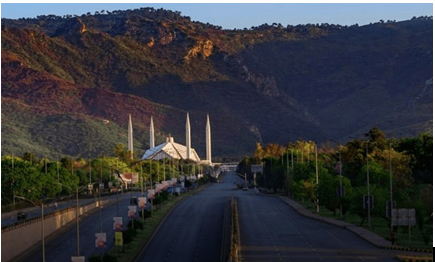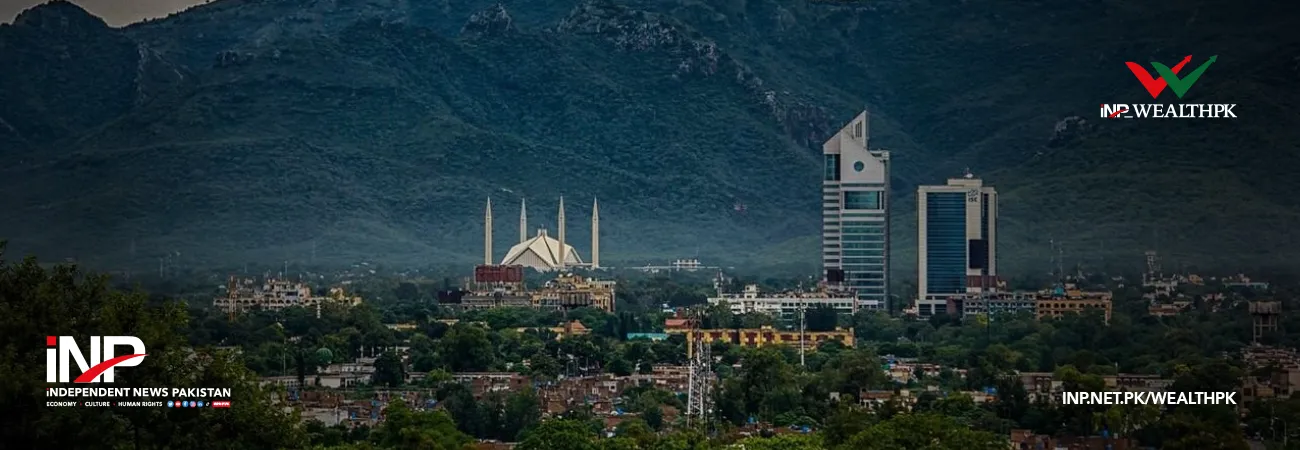INP-WealthPk
Muhammad Faisal Kaleem
The federal capital has recorded a highly satisfactory level of air quality, while the successful enforcement of government regulations across the industrial, agricultural, and transport sectors has significantly improved compliance with the National Environmental Quality Standards (NEQS).

According to a document from the Ministry of Climate Change and Environmental Coordination, exclusively obtained by WealthPK, Islamabad maintains moderate to satisfactory air quality levels, especially outside the peak winter months. “No major or persistent smog events have been recorded in the capital city during the past five years,” reads the document. The primary factors contributing to air pollution include the burning of fossil fuels, industrial processes, agricultural waste, biomass, crop residue and solid waste burning, and vehicle emissions.
According to the Ministry of Climate Change, cross-border air pollution — where pollutants travel from one country to another — remains a significant concern, particularly for the small countries that may be disproportionately affected by the emissions from larger industrial nations. This issue is especially pronounced in regions like South Asia, where the air pollution crosses borders, impacting the health and environment of multiple countries.
The National Clean Air Policy 2023 offers a strategic framework for emissions and air pollution. It also covers the improvement of air quality to protect human health and the environment. The policy calls for the establishment of air quality standards, along with the implementation of monitoring and enforcement mechanisms.
The document further states that under the New Electric Vehicle Policy (NEVP) 2025, which is already implemented, the government targets the sale of 30 percent electric vehicles (EVs) of the total sale of vehicles. The NEVP includes cars, buses, motorcycles, and rickshaws. It was an effort to accelerate the country’s shift toward sustainable transport, reduce fossil fuel dependence, and curb climate-warming emissions.
According to the Special Assistant to the Prime Minister on Industries and Production Haroon Akhtar Khan, the policy is a historic and transformative step in Pakistan’s journey toward industrial, environmental, and energy reforms. The new policy is aligned with the prime minister’s vision of promoting clean, sustainable, and affordable transport while encouraging local industry and protecting the environment, he claimed.
This development is supposed to save 2.07 billion liters of fuel annually, equivalent to around $1 billion in foreign exchange. Additionally, the policy is expected to reduce carbon emissions by 4.5 million tons and cut healthcare-related costs by $405 million per year. Although the country as a whole does not rank good globally in terms of climate change and is facing the crisis with severe environmental implications, Islamabad is maintaining exceptional climate management strategies. It is beyond any doubt that since 1960, the country has experienced a significant rise of 0.5°C in temperature, the document reads.
According to environmentalists, deteriorating air quality has contributed to substantial economic losses, amounting to over $40 billion in damages from the 2022 floods alone. It is estimated that five million Pakistanis will be exposed to extreme river floods annually.
Credit: INP-WealthPk









